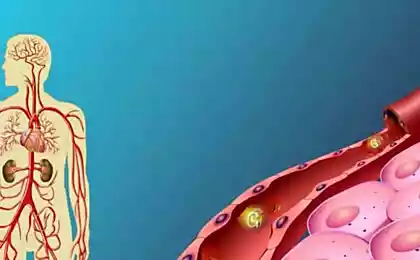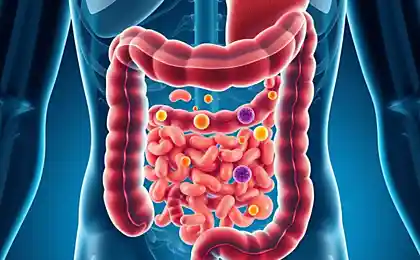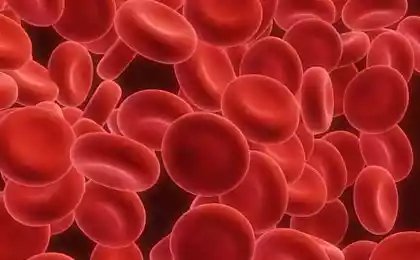201
10 symptoms of oncology
What changes are the reasons for a visit to the doctor? Breast changes If you feel a lump, do not ignore it, even if the mammogram shows that everything is fine. If the nipple begins to peel, it may indicate Paget’s disease, which is 95% of cases associated with breast cancer. Any milky or bloody discharge from the nipple is also a reason to check.
The appearance of dimples on the skin of the breast, especially similar to orange peel, can be a sign of inflammatory breast cancer, a rare, usually aggressive form of cancer that is also characterized by swelling, redness and fever in the breasts.
If you see a doctor with such symptoms, they will examine you, ask about your medical history, order a mammogram or ultrasound, and possibly a biopsy.
Irregular bleeding
After menopause (defined as 12 months without menstruation), any bleeding is a dangerous sign. Whether it is bleeding, barely noticeable discharge or large clots - all these are signs of anomaly and a reason for immediate medical attention. Such bleeding can signal both benign problems and endometrial or cervical cancer.
Any other atypical bleeding — such as spotting in the middle of a cycle or unusually heavy bleeding during menstruation — is also cause for concern. In the period before menopause, unexpected bleeding is often attributed to hormonal imbalance, but the cause may be more serious. The doctor will prescribe an ultrasound examination and possibly a biopsy.
Rectal bleeding
Colon cancer is the third most common among women. One of its signs may be rectal bleeding, which is often attributed to hemorrhoids. If you notice red or dark blood in your stool, see your doctor.
The doctor will perform an examination and order a colonoscopy, especially if you are over fifty years old.
Allocations
Vaginal discharge that has an unpleasant odor can be a sign of cervical cancer. The discharge may contain blood and appear between periods or after menopause. In this case, you should not self-medicate, but you should consult a doctor.
The doctor will conduct an examination to see if the discharge is due to infection or more dangerous problems.
Bloating.
Ovarian cancer is quite widespread. He has long been a "silent killer," but doctors struggle with it. Ovarian cancer has noticeable symptoms. Here are the most frequent - bloating, a feeling of overeating (even if you did not eat very much), a change in the frequency of bowel movements or urination, pain in the lower back or lower abdomen.
One or two of these symptoms are not unusual, especially after a feast. But if two or more of these symptoms appear daily for more than two weeks, you should see a doctor.
In this case, you will need to undergo a gynecological examination, an ultrasound examination and, possibly, a blood test.
Unexpected weight loss or gain
If you have gained 2 kg, this is not a cause for concern. But if weight gain lasts several months, and usually your weight is stable and you do not overeat, this is a cause for concern. Perhaps the weight gain is explained by the accumulation of fluid in the abdomen due to ovarian cancer. In general, you should consult a doctor.
An unexpected weight loss of 5 kg or more can be a sign of a malignant disease, such as pancreatic, stomach, esophagus or lung cancer. However, weight loss may also be associated with thyroid hyperfunction. Therefore, the doctor will most likely first prescribe an examination of this gland.
Constant coughing
If you have a persistent cough — not going away for two or three weeks and not associated with allergies or upper respiratory disease — or a cough with blood, be sure to see your doctor. If the cough is associated with smoking (including passive), you should also consult a specialist. Your doctor will likely refer you to a chest X-ray and possibly a CT scan.
Changes in the lymph nodes
If you feel hard lymph nodes in your neck or under your arm, see your doctor. Swollen, hard lymph nodes usually signal an infection. But it can also be a sign of lymphoma or cancer of the lungs, chest, head or neck.
Your doctor will examine you and possibly do a biopsy.
Fatigue
Although fatigue is difficult to measure, if you constantly feel tired and it doesn’t go away after rest, it can be a symptom. Leukemia, cancer of the rectum or stomach can cause permanent fatigue. Fatigue can be a serious problem.
The doctor will examine you and probably refer you for a blood test to find out the condition of the thyroid gland.
Skin changes
Monitor the condition of the skin throughout the body and if any disturbing signs occur, consult a doctor.
Not passing mouth sores, especially if you drink alcohol or smoke, can be a sign of oral cancer.
Monitor the condition of the skin in the genital area. Long-lasting damage can be a sign of melanoma or other cancers.
Your doctor will examine you and possibly do a biopsy.
Outcome
Watch for these symptoms, but do not panic. Don’t be afraid if you notice something unusual, just see your doctor. Most likely, the cause of the symptoms is not cancer. Cancer can also be cured if it is detected early. In time, noticing a dangerous disease, you will be able to undergo treatment and live life to the fullest again.

Source: /users/559























